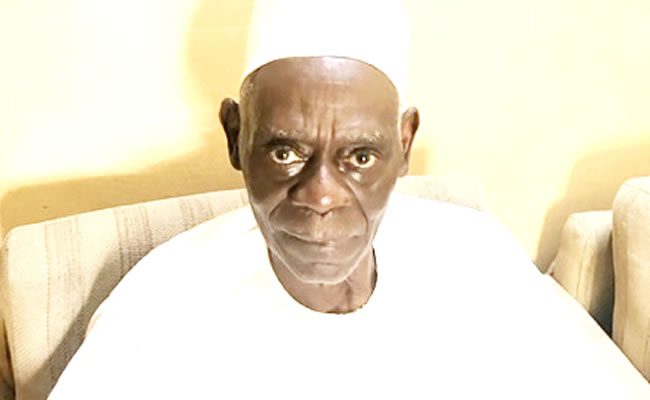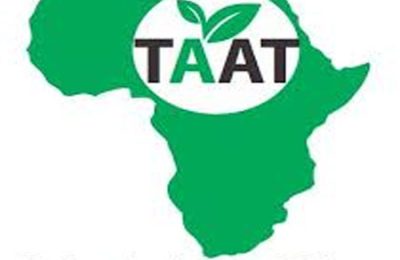As citizens celebrate the 64th Independence anniversary of Nigeria, a former general secretary of the Arewa Consultative Forum (ACF), Mr Anthony Z. Sani, who was just 10 years old in October 1960, goes down the memory lane on the ideals and values prevalent among the founding fathers of the country that held sway in politics and power. KUNLE ODEREMI brings the excerpts of the interview:
You were just 10 years old when Nigeria gained independence from Britain in 1960. Anything from that experience?
At that age in a villlage setting there would not be any experience worth sharing. We actually had been made by our teachers in primary school in the village to understand that Nigeria would be free from the rule of white man as from 1st October 1960. But the village setting had no means for us to witness the ceremonies. All the same, I can say when the 1/10/1960 arrived,there was excitement not only in the primary schools but also in the whole village in the expectation and hope that when Nigerians ruled themselves, things would be made much easier, better and the master/servant relationship would be no more.

What are those things you can recollect concerning the day and the process that led to independence?
At that level, age and without radio, all we had been told by our teachers were that the Queen would come from England and hand over the government to Tafawa Balewa and Sardauna of the Northern Peoples Congress (NPC), Sir Ahmadu Bello would fully be in charge in Lagos and Kaduna respectively. The teachers also told us that Chief Obafemi Awolowo of the Action Group would be in charge of the Western Region while Chief Michael Okpara would rule Eastern Nigeria.
The excitement in the village was that the white man would not rule us any more,and that many things would be much easier for Nigerians as from First October 1960.

How did the trend of events shape your disposition, thinking and psyche about the country, given its ethnic heterogeneity?
The teachers had taught us the National Anthem that despite our differences in language and religion,as Nigerians we were the same before God and also before our leaders who were Nigerians as from the Independence Day. Ethnic and religious differences did not seem to count the way they do now.
What impression did the Nigerian State leave or create in your subconscious then and till date and why?
It’s because Dr Nnamdi Azikiwe,Chiefs Michael Okpara, Obafemi Awolowo,Sir Abubakar Tafawa Balewa, Takar, Sir Ahmadu Bello, the Sardauna of Sokoto and Mallam Aminu Kano were united by the struggle for independence, we could not imagine any fissiparous tendencies based on religious and tribal sentiments. We saw unity of Nigeria ruled by Nigerians as given.
Were there signs then that the lofty ideals of Nigeria becoming independent would be ingrained in the life of the leaders,the people as a whole and the country indeed?
There was no way for one to know time would come when everything in Nigeria would be given ethnic, religious or regional coloration, especially when regard is paid to how the struggle for independence has united the leaders who were of different ethnic, religious and regional coloration.
What special benefits and privileges accrued to you then as a young boy while savouring the aura and aroma of independence and sovereignty?
There was nothing spectacular, but the manner we were sent to provincial secondary schools in blithe disregard for ethnicity, religion and region could be regarded as special benefits for unity of the country. To us, that was exciting opportunity to be educated.
Don’t you think it would have been more beneficial to the Constituent units of the Federation if the regional autonomy had subsisted in the last six decades or more, and why do you think so?
From the benefits of hindsight and even now, there was no way a weaker national government could hold the country that is diverse under one roof. You would recall when 13 American colonies came together to form USA, they first formed a confederate arrangement with weak center for the first ten years. It was after the confederation was found not to be strong enough to hold the country together that made America to change to federalism where the national government is balanced by appropriate state level power.
I do not see how weak center could have held stronger regions that were diverse country like Nigeria together.
Where do you envisage that the country could be in the years ahead, given its experiences in governance, leadership recruitment process, emphasis on building strong personalities rather than viable and strong institutions that exalt a nation?
The process of nation building is work in progress. As far as I am concerned, I do not see the challenges faced by Nigeria as emanating from the constitution but from collapse of national ideals and moral values; though I know no constitution of any country is ever perfect. I say this because this country has been restructured several times, be it geopolitical form of government or economic development model.
We started from three regions, then four regions and now we have 36 states. We tried confederation under the watch of parliamentary system. This was supplanted by unitary system by military dictatorship. We then left regionalism because it could not hold a diverse country like Nigeria together and now we are in federalism in which the national government is balanced by appropriate state level power under the presidential system. That means we have tried all forms of government to no avail. Yet, we know the presidential system works fine in America, the parliamentary system is doing well in Britain while a combination of the two does well in France. Unitary system is working well in China.
Nigeria experimented state capitalism, which does well in China and now on privatisation akin to western world.
Those hankering for new constitution on the ground that the 1999 was not sired democratically are those who are ignorant of the fact that the 1999 is a clone of 1979 constitution. Now the facts:
In 1978, General Obasanjo put up a Constitution Drafting Committee of 50 members. Chief Awolowo declined and left the “49 wise men” under the watch of Chief Rotimi Williams. The draft constitution was debated by an elected Constituent Assembly chaired by Justice Udo Udoma. The debated document was promulgated as 1979 constitution. Many of our first eleven politicians contested elections under the 1979 constitution. They included Dr Nnamdi Azikiwe, Chief Obafemi Awolowo, Alhaji Shehu Shagari, Mallam Aminu Kano and Alhaji Waziri Ibrahim. Others included Chief Bola Ige, Chief Jakande, Chief Ajasin, Chief S D Lar and Chief Mbakwe. The 1979 constitution was suspended in 1983 by General Buhari through a coup. When General Abacha and Chief MKO Abiola died and the mantle of leadership fell on General Abubakar Abdulsami, he put up a committee under Justice Nikki Tobi to harmonise the 1979 constitution with that of 1995 into 1999 constitution so he could use it to hand over to an elected government.
Justice Nikki Tobi’s committee went round and consulted with Nigerians who preferred 1979 constitution. General Abdulsalami accepted the recommendations and promulgated 1979 as 1999 constitution with only additions of states and local governments created after promulgation of 1979 constitution. Hence the butt of joke in the street that 1999 constitution is self same with that of 1979 that was sired democratically using same process America used to fashion out their own constitution.
The 1999 Constitution may not be perfect. That may be an odd thing to say, considering no constitution is ever perfect. That may explain why people say that order, justice, liberty, common decency and prosperity for all are attained through ceaseless hard work by both leaders and the led.
Please note those who want the country to be restructured so each section can develop at its own pace are those who want Nigerians to live as if they are in different country where some sections are on cutting edge and some others on knife edge of survival. And they say this in blithe disregard for the fact that reduction of inequality is not only good economics but also good politics.
READ ALSO: Nigeria@64: Ohanaeze demands political pardon for Nnamdi Kanu







